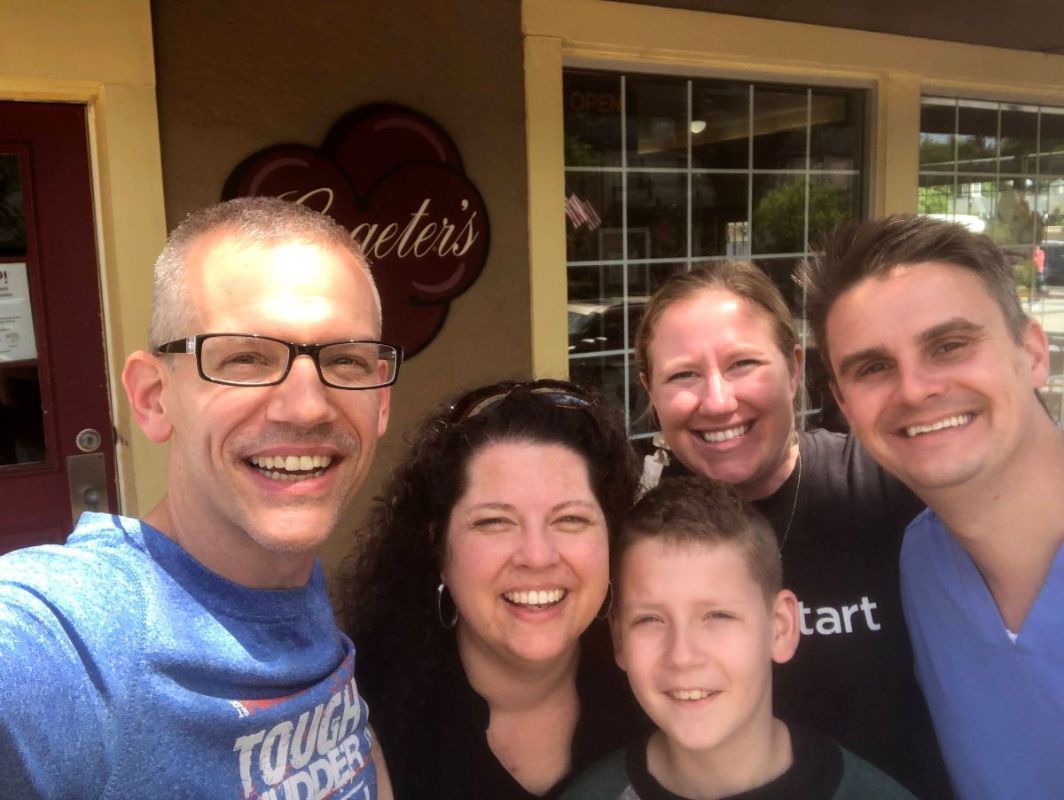 The people who train to save lives sometimes lose themselves along the way.
The people who train to save lives sometimes lose themselves along the way.
That’s what Paraclete associates Bryan and Sharon Stoudt have learned after coming alongside healthcare students and personnel for 15 years.
Doctors sometimes spend as many as 12 years of intense training for their profession, gaining huge amounts of school debt while losing touch with the people in their lives. Many start with a passion for serving God, but lose their way amidst the stress.
“Time and time again, without support, they end up shriveled up by the end of the training,” said Sharon. “They’re not walking with God or at least not vibrantly. They’ve just lost the North Star.”
The competitive nature of the field doesn’t go away once they start their practice, either.
“Even studying together can be threatening like seen as a threat,” Sharon said. “Like, ‘why would I help you? You’ll just get a better grade than me.’ That continues to grow even as professionals like…being protective of your patient base. It’s the antithesis of community.”
Their intense schedules keep them isolated from their church, friends and family. And they struggle to find mentors and confidants within the healthcare system. They see a lot of traumatic needs in their work—even orthopedic surgeons may have patients who’ve tried to die by suicide by jumping off buildings, for example—and their burdens are heavy.
“The realities of practice can kind of wear you down and lead you to forget why you got in in the first place,” Bryan said.
So, the Stoudts mentor healthcare workers, but also work to create a “greenhouse” of resources, mentors, support and community. This creates an environment where people can encourage and learn from each other.
“We had a pre-med student that we connected to one of the orthopedic fellows,” Sharon said. “Then we had another medical student who’s thinking about radiation oncology. We connected her to a female practicing professional so she was able to go shadow for a day in the clinic.”
This kind of ministry has become even more important during the pandemic. COVID-19 has made healthcare workers’ jobs even more challenging and their in-person connections even less frequent.
“They basically haven’t emerged since last March,” said Bryan.
“They’re like, ‘I am working 80 hours a week trying to beat this beast, and it’s really personal,’” Sharon said.
The Stoudts aren’t doctors or nurses themselves. But with an autistic son, they’ve been grateful for access to good healthcare services over the years. And given their background in undergraduate student ministry, when there was an opportunity to serve this community, it felt like a good fit.
In fact, they recently moved from Philadelphia to Phoenix to access better resources for their son. They hope to grow the Phoenix healthcare community, but because the healthcare community is so transient, they trust their investment in Phoenix will have an outward, global impact as well.
“We were praying that it would be a launching pad for missionaries to even form teams during their training, and then go together to serve somewhere,” Sharon said.

